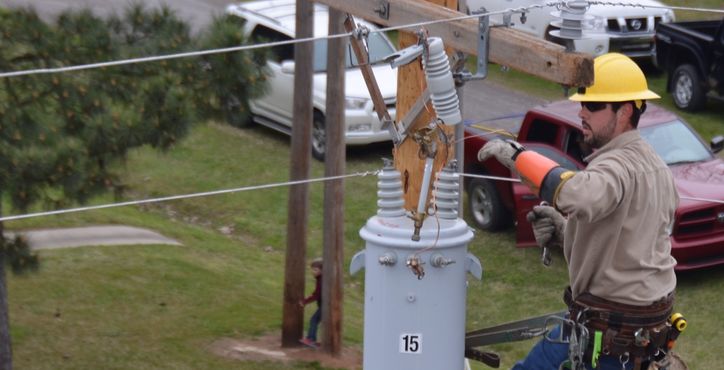Electric Coops CEO wrestles with ever-evolving factors to maintain reliability, affordability
by January 15, 2023 2:39 pm 2,550 views

With energy prices affected by everything from oil and gas supplies to the transportation limitations to the Ukranian conflict and weather, it’s not easy to keep the lights on.
Buddy Hasten, president and CEO of the Electric Cooperatives of Arkansas, said Sunday (Jan. 15) on Talk Business & Politics that the U.S. needs an “all of the above” strategy for electricity generation and more investment in the infrastructure to deliver it.
“Every area in the world we talk about today, diversity is a good thing,” Hasten said, noting that coal plants are closing, nuclear plants are on hold, and the most rapidly developing sector of replacement fuel is gas and renewables. “If you go look at what’s being built today, primarily it’s wind and solar and those are great resources. I mean, they’re great because they don’t have a fuel cost, but they have their technical limitations. Meaning you or I don’t control where the wind blows… And then there’s just a natural, the sun rises and the sunsets.”
For Hasten and many other veterans in the energy industry, reliability is key to customer satisfaction and stabilization of the marketplace.
“When you talk about diversity of power supply, I’m in 100% all of the above. I support all of the resources, and really look for ways to say, ‘How do you make our electric grid the most reliable, affordable, while still trying to integrate new technology to really address emissions and carbon and everything else that comes out,’” he said.
The pandemic compounded a major infrastructure problem for energy providers. Hasten is part of a federal stakeholder group that meets weekly with U.S. Department of Energy officials.
“Lead times for critical grid infrastructure has skyrocketed. Two years ago, if you wanted to buy a distribution transformer – imagine if you were going to build a subdivision – a home builder wants to go put in these pad mount transformers to run all the wires and feed the subdivision. They could probably pick up the phone and get one of those in a month. In 2021, that started to increase. And what we’ve seen by the end of 2022, if somebody picks up the phone to order one of those transformers, it’s going to be over a year in some cases,” Hasten said.
He added that prices have nearly doubled for the cost of this equipment due to supply shortages.
In the 2023 legislative session, legacy energy companies, the Public Service Commission, renewable energy providers, and other stakeholders in the power supply chain will be wrestling with substantive state policy. Labeled “net metering,” the biggest issue will center around who pays what to be on and off the traditional energy grid.
In the past, regulated electricity companies set rates and had to negotiate any increases or decreases with the Arkansas Public Service Commission. With the rise of solar power and the ability of some companies or customers being able to generate their own electricity independently, there will be issues related to tying into the traditional energy grid to draw power when needed or to provide excess power to the overall system.
“I think the argument really comes down to what folks are paid for the kilowatt hours that they push out onto the grid, right? They buy solar panels, they use that power, they avoid their utility, they get the full benefit of that. Now the question is if they make more than they need and they push it onto the grid, what do they get for that?” Hasten said.
He argues that some customers want the retail rate in payment, which increases the cost for utility companies who must pay top rate and then roll their additional costs for distribution into the reuse of this electricity. Hasten said that business model would not be sustainable, nor would it keep consumer costs low.
“I would point to California. They recently rolled theirs back to something called ‘avoided cost.’ And that’s really basically whatever I can provide it for or make it for at the wholesale level that’s called ‘avoided cost.’ Today we’re retail, so that excess kilowatt hour, that solar net metering customer gets credited the full retail rate, which is probably about three times what my wholesale cost is. Because there’s an expense to run the retail side of the whole electric system,” he said.
“My job is to be reliable, affordable, responsible. I’m probably one of the few CEOs you’ll ever get on this program that’s trying to lower his top line revenue because I don’t want to charge people more for electricity. But this is really about who pays and when you pay above ‘avoided cost,’ which is the fair price in our opinion.”
You can watch Hasten’s full interview in the video below.
